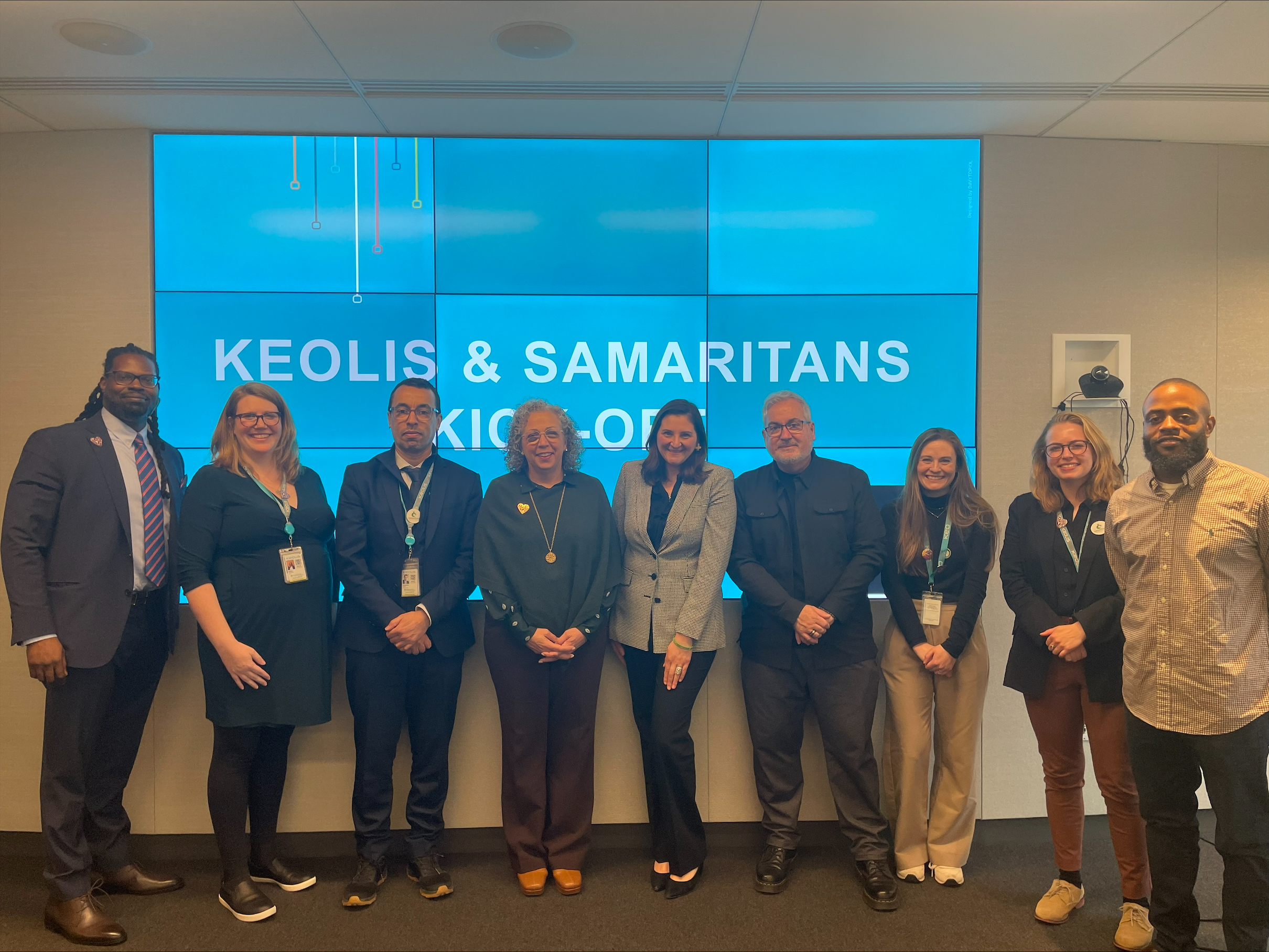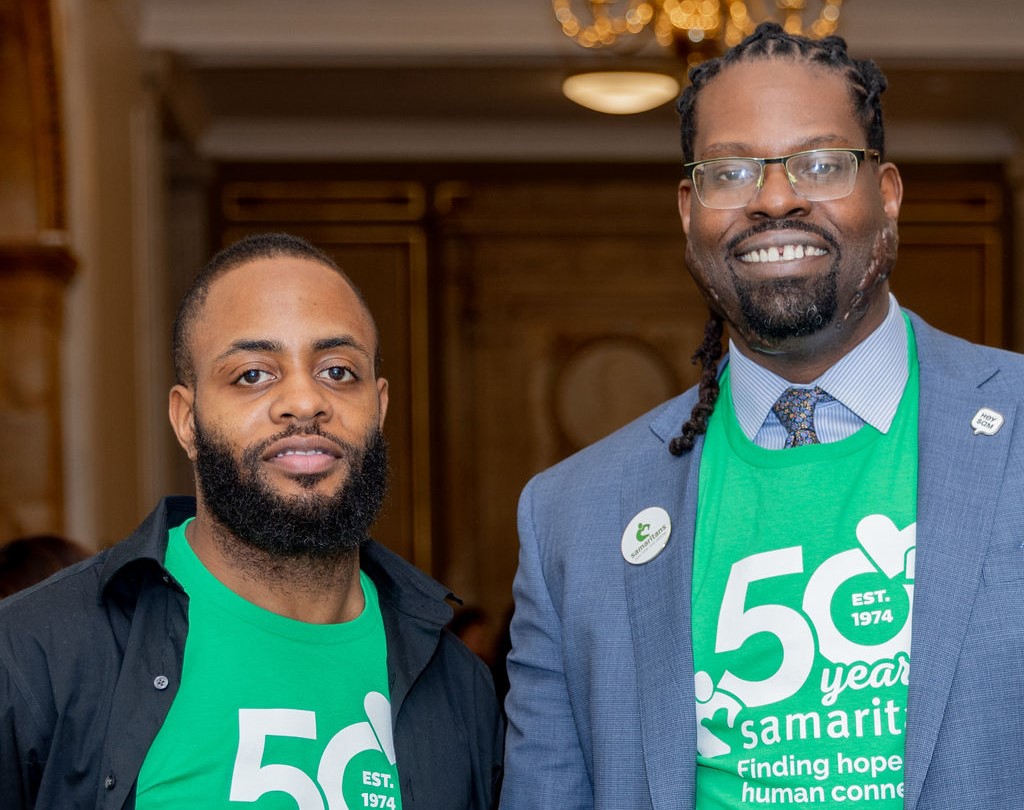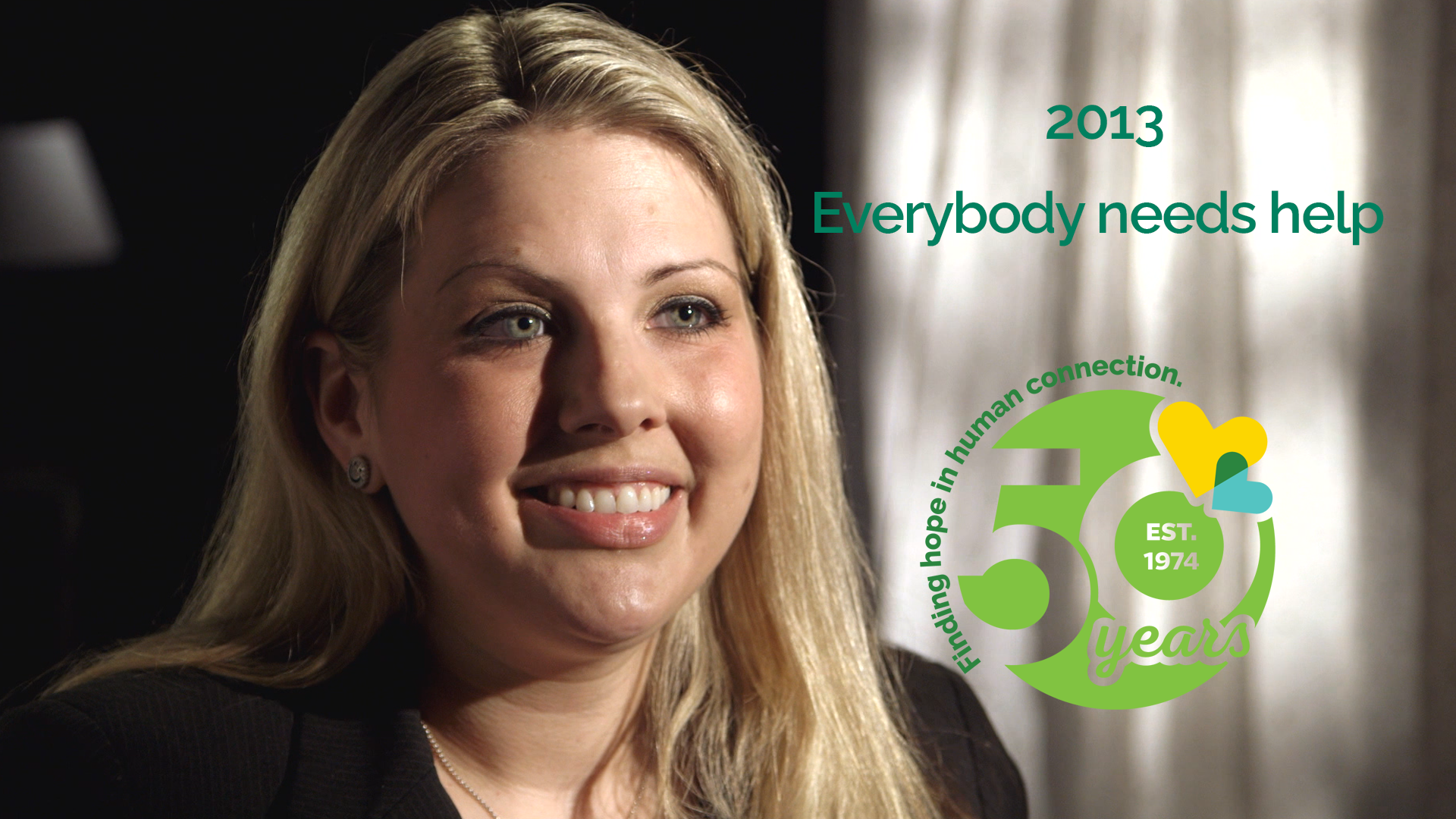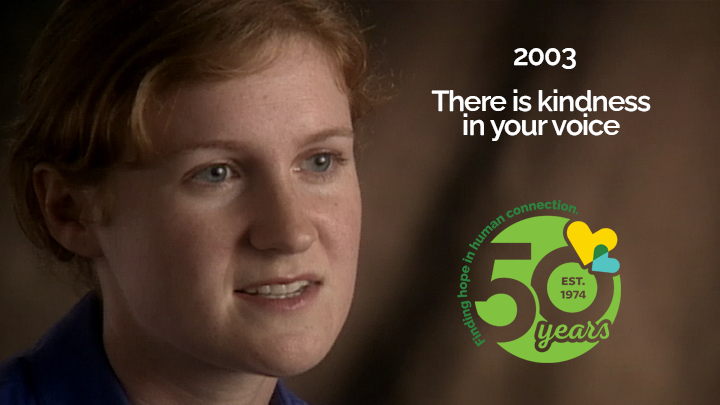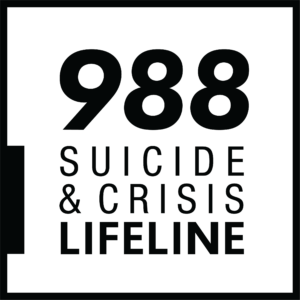For Steven Karaiskos, outgoing Senior Director of Community Education & Outreach at Samaritans, June is a month of particular significance for him. It is Pride Month.
“Pride month is about elevating yourself and having pride in who you are, and it’s also about having pride in your community,” Steven said. “There is a layer of pride that we all should have in our identity, and when it is dismissed, it is just horrendous. It is people just trying to be who they are, and they can’t.”
As a member of the LGBTQ+ community, Steven said that starting around 5th grade, he knew something was different about him, but he didn’t want to understand it or know it about himself. Growing up in a small town in Ohio in the 80s, he has memories of going to the town library and looking up the words “gay” and “homosexual” in the ancient card catalog drawers—years before the internet. He would then sneak into the row where the books could be found, grab a book, and run to another aisle so that no one would find out he was reading about those topics.
“Knowing who I was didn’t come as a big moment,” Steven shared. “It came in small little moments. It came first in acknowledging to myself that it was okay to be who I was. Having society tell you it’s a terrible thing all the while is a hard thing.”
Steven said that one small moment that enabled him to move toward being his true self was when he met another gay man at the age of 17, who gave him a copy of James Baldwin’s Giovanni’s Room—which had the first homosexual characters in a book Steven had ever read. The revelation of this book, for Steven and many gay men at this time, is best understood from what Baldwin, a gay Black man, stated that it was “not so much about homosexuality. It is what happens if you are so afraid that you finally cannot love anybody.” Steven said that this was the first time he considered the need to be able to live as he was and fully be himself.
“I wish I could have found my own strength—my internal strength—about who I was at a younger age,” Steven reflected, “because from my early teens until my mid-20s, I was pretty scared of the world. Movies held stereotypes of homosexuality. The media was lessening and even became cruel when the AIDS crisis rose up, and there were very, very few role models for a young gay person to witness. It really was a solitary self-discovery. And, in growing up in Ohio, community was near impossible to find. It limited me in a lot of ways. Even my own development personally and professionally slowed down.”
When Steven finally made the decision to share who he was with the world, he said it was a multi-year process and that he felt both release and fear simultaneously.
In the LGBTQ+ community, people so often feel like they have to hide their story—from work, from peers, from their family. . . When you have to minimize that much of your life, it has repercussions.
“For the first time I was able to say, “Here I am!” while also having to fear being ostracized by people,” Steven recounted. “When I graduated from college and started work, I remember that we were not gay at work. We would use different pronouns of people we were dating to hide it. The world was a really harsh place, but at the same time, it activated me. I finally came out of my shell and discovered a larger part of my personality that didn’t have anything to do with my sexuality. My role as an activist for causes I care about had just been subdued because I had been overwhelmed and scared for so many years.”
Steven said while sharing his story is healing for him, he also knows that his story is unfortunately not unique or isolated.
“In the LGBTQ+ community, people so often feel like they have to hide their story—from work, from peers, from their family. Their story ends up hidden way down deep, rarely coming out because of fear of someone being negative or harsh toward them because of who they are. When you have to minimize that much of your life, it has repercussions.”
And the repercussions on mental health are vast and deep:
- LGBTQ+ adults are twice as likely to struggle with a substance use disorder.
- 22% of lesbian, gay, and bisexual youth have attempted suicide, and 45% have seriously considered suicide.
- 40% of transgender adults have reported making a suicide attempt.
- 24% of teen deaths by suicide occurred in those identifying as a member of the LGBTQ+ community.
“What is often misunderstood is that one’s identity doesn’t raise these mental health numbers higher,” Steven said. “It’s the reception from society, the rejection from community, the minority stressors such as homophobia and transphobia, and the lessening of one’s dignity that creates some of these statistics. It can really cause people to feel lessened, to feel alone, and to feel like a burden.”
But Steven says that in spite of these statistics, he does see progress and believes that there is hope for a future where the LGBTQ+ community doesn’t have to feel confined to shining during one month of the year.
“It took years and lots of building of community and connection to now be proud of all aspects of my identity,” Steven admitted. “The LGBTQ+ community is strong because of these journeys to embrace our own identity, create community, and stand proudly for our space in this world. When I hear about young members of the gay community that have a caring, supportive community—to see them shine at 15 and 16 years old—there are very few people I knew who could shine like that at that age. It’s a beautiful thing to see. I hope for a future where every person has that opportunity.”
In the same way that Steven has chosen to share his story here, he says that one way in which we can make progress toward that vision is by creating a safe space for all members of the LGBTQ+ community to share their story—and for society to be eager to hear those stories.
“One thing that we teach in all suicide prevention workshops is that listening is such a critical skill,” he said. “It’s about validating and being nonjudgmental. When an LGBTQ+ person is sharing about themselves and you are less familiar or connected with that community, you can really put those skills into place. Even if you don’t agree, it’s about their humanity. These are humans who have dignity to be. It would be a dream come true if the LGBTQ+ community could one day wake up every day and feel free to express themselves and tell their stories.”
